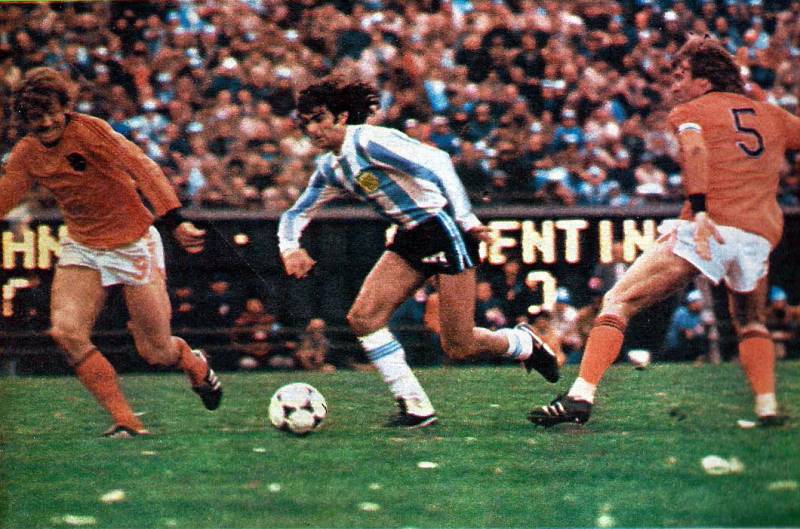If the Mexico 1986 World Cup has Diego Armando Maradona as its indisputable icon, in 78 World Cup Mario Alberto Kempes raised above all other players. “Matador’s arms raised his long hair flying in the wind while he slipped through the three Dutch defensemen. His skilled touch of the ball with the tip of the boot that broke the draw and unleashed the Argentine celebration. With his goal scorer stamp he appeared in the right place at the right time.
Kempes remembers those days with pride, although he had mixed feelings. “We are not respected. What we did was not for the politicians who were sitting in the box, we did it for Argentine football and for the people. We didn´t know what was happening”, he says.
The voice of the 78 World Cup goalscorer is the voice of a group of players who feel underrated. Forgotten. He lives with the impression that the star achieved in 86 Mexico shines brighter than that the one achieved in 78 Argentina . He repeats that that they had a single goal: “to bring joy to the“, and that they were not aware of the gravity of the facts that happened in the country, a few meters from the Monumental stadium where El Matador was becoming a hero.
 Mario Alberto Kempes en acción ante Holanda en la final del Mundial 78.
Mario Alberto Kempes en acción ante Holanda en la final del Mundial 78.
To understand the Argentine football of those times and the importance of Kempes its worth remembering that the striker was the only player of the 22 of the national team that played abroad. With 23 years, the Cordobés already shone in the Valencia of Spain and would end up being one of the greatest players in the history of that club. The rest of his teammates played in the Argentine league.
 Mario Kempes en la charla con Papelitos.
Mario Kempes en la charla con Papelitos.
In the World Cup, Kempes went from minor to major: he didn´t score goals in the first phase, but he would leave his mark in three decisive matches. He scored two goals against Poland, two in the remembered 6-0 win against Peru and two in the final against Holland. He was the topscorer of the World Cup and was chosen the best player of the tournament. When asked what the first thing he remembers is, he did hesitate. “The people´s faces. That stuck with me, that's what I'm taking with me. I have neither a medal nor a photo with the World Cup. But seeing people celebrate as they celebrated is unforgettable.”
That's why the contrast is so great. That´s why is inevitable that that sporting achievement includes an undesired shadow.
“We carry the great weight of the dictatorship”, Kempes insists. “It was commented so many times that we have played for the dictatorship and not for the Argentine football that it has become like a lie we cannot escape. A pure and hard lie we, the ones who got Argentina its firs championship, have to pay.”
—¿Qué siente un campeón del mundo cuando sobrevuela la sensación de que la conquista estuvo arreglada para beneficiar a la dictadura?
—Da bronca. Hablaron del partido con Perú, de los barcos de trigo, que la Junta Militar entró al vestuario... todas mentiras. Si en ese momento le hubiéramos tenido que hacer 10, le habríamos hecho 15. La diferencia era grande. Tampoco tenemos la culpa de que Brasil haya pegado treinta tiros en el palo contra los polacos. ¿O también nos van a echar la culpa de eso?